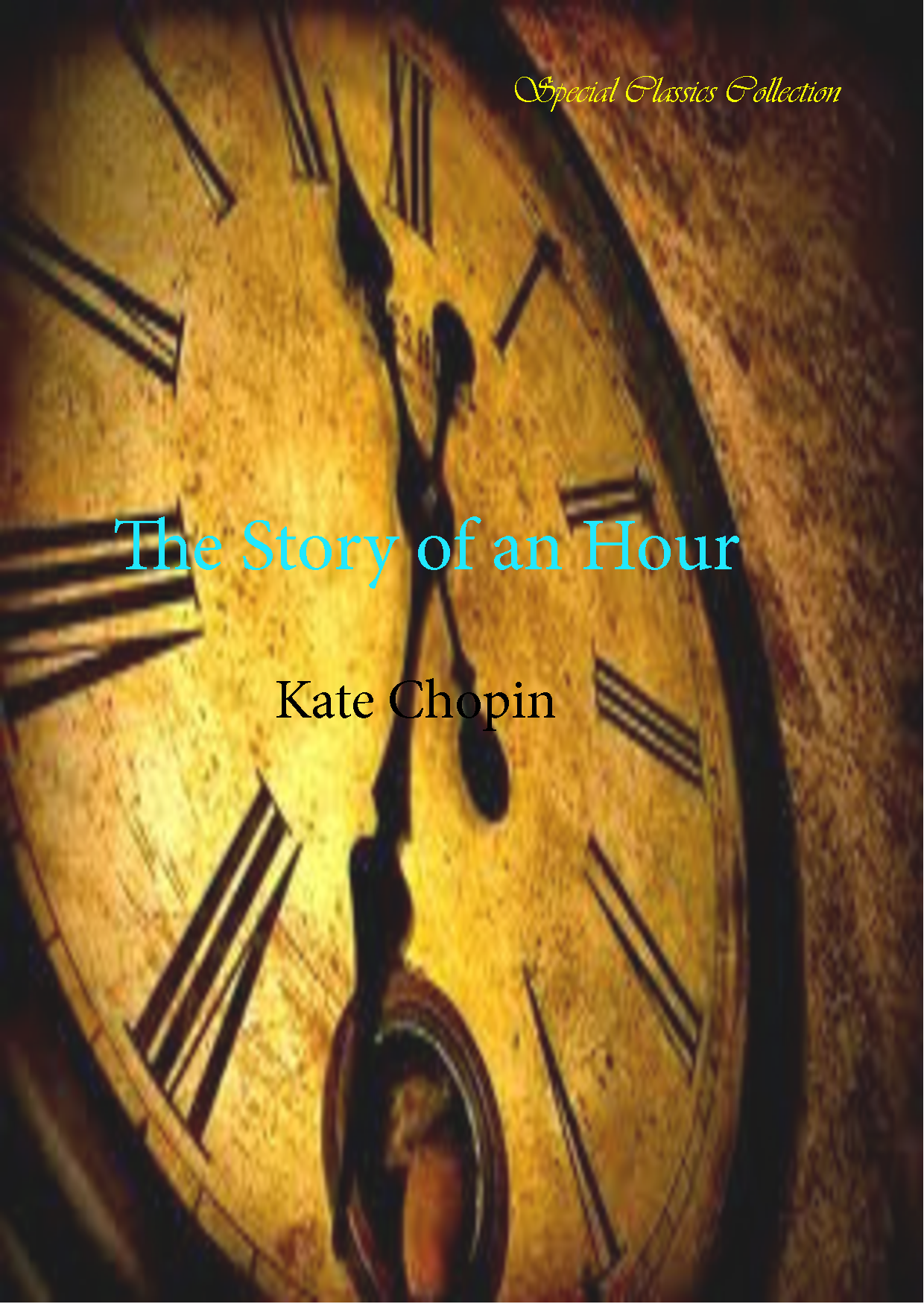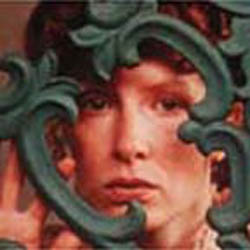| Add caption |
This is your last major grade of this marking period. The only other one is your vocabulary 2, 3 and 4, which was due on Monday.
Test on Monday on the vocabulary for week 2...don't forget the idioms
| Add caption |



Knowing
that Mrs. Mallard was afflicted with a heart trouble, great care was
taken to break to her as gently as possible the news of her husband's death.
|
How might heart trouble be more than a physical ailment? Note that
this is the first thing we are told about her and how other people respond to
her. Evidently this is--at least for those around her--an important part of
who she is.
|
It was her sister Josephine who told
her, in broken sentences; veiled hints that
revealed in half concealing. Her husband's friend Richards was there, too,
near her. It was he who had been in the newspaper office when intelligence of
the railroad disaster was received, with Brently Mallard's name leading the
list of "killed." He had only taken the time to assure himself of
its truth by a second telegram, and had hastened to forestall any less
careful, less tender friend in bearing the sad message.
|
1. Why
is she tantalizing her with hints?
2. What does this suggest about how the family
views Mrs. M.?
3. What
does this paragraph suggest about Richards' feelings for Mrs. M?
4.
Why is
he in such a hurry? Is the code of the "southern gentleman" at work
here, or could there be more to his concern than that?
|
She
did not hear the story as many women have
heard the same, with a paralyzed inability to accept its significance. She
wept at once, with sudden, wild abandonment, in her sister's
arms. When the storm of grief had spent itself she went away to her room
alone. She would have no one follow her
|
1.
Why are we first told how she does NOT hear
the news? What does this reaction suggest about her? about how
"ladies" were expected to react?
2. What does this passionate response tell us about her? This is our
first real clue as to what sort of person she is--aside from her reported
state of health.
|
There stood, facing the open window,
a comfortable, roomy armchair. Into this she sank, pressed down by a
physical exhaustion that haunted her body
and seemed to reach into her soul.
|
1.
How are the window and chair descriptions
suggestive of longing or desire? What do they imply about her ordinary life?
2.
What does this very dramatic (even
melodramatic) statement suggest about her psychological state?
|
She could see in the open square before her house the tops of trees
that were all aquiver with the new spring
life. The delicious breath
of rain was in the air. In the street below a peddler was crying his wares. The notes of a distant
song which some one was singing reached her faintly, and countless sparrows
were twittering in the eaves.
|
1.
Note the contrast of motion and stillness. Why
is the time of year so important?
2.
Delicious ordinarily refers to taste. Who is
"tasting" here?
3.
She too has been "crying." What does
this detail, as well as the other sensory images, tell you about what she is
experiencing?
|
There were patches of blue sky
showing here and there through the clouds that had met and piled one
above the other in the west facing her window.
|
1.
How does this picture represent symbolically
what she sees about her situation?
|
She sat with her head thrown back upon the cushion of the chair,
quite motionless, except when a sob came up into her throat and shook her, as
a child who has cried itself to sleep
continues to sob in its dreams.
|
1.
Why is she compared to a dreaming child?
|
She was young, with a fair, calm face, whose
lines bespoke repression and even a certain strength. But now there was a
dull stare in her eyes, whose gaze was fixed away off yonder on one of those
patches of blue sky. It was not a glance
of reflection, but rather indicated a suspension of intelligent
thought.
|
1.
What does her face tell you about her life?
2.
What sort of emotional state is she in?
|
here was something coming to her and
she was waiting for it, fearfully. What was it? She did not know; it was too
subtle and elusive to name. But she felt it, creeping out of the sky,
reaching toward her through the sounds, the scents, the color that filled the
air.
|
3.
In your first reading, what do you guess that
"something" might be?
|
Now her bosom rose and fell
tumultuously. She was beginning to recognize this thing that was approaching
to possess her, and she was striving to beat
it back with her will --aspowerless as
her two white slender hands would have been. When she abandoned herself a little whispered word escaped her
slightly parted lips. She said it over and over under her breath: "free, free, free!" The vacant
stare and the look of terror that had followed it went from her eyes. They
stayed keen and bright. Her pulses beat
fast, and the coursing blood warmed and relaxed every inch of her body.
|
1.
What does this description of her hands
suggest?
2.
What is happening to her? Why does she repeat
"free?
3.
Note how the sensuality of what she sees has
been tranferred to her body. Why might she react this way?
|
She did not stop to ask if it were or were not a monstrous joy that held her. A clear
and exalted perception enabled her to dismiss the suggestion as trivial. She
knew that she would weep again when she saw the kind, tender hands folded in
death; the face that had never looked save
with love upon her, fixed and gray and dead. But she saw beyond that
bitter moment a long procession of years to come that would belong to her
absolutely. And she opened and spread her arms out to them in welcome.
|
1.
Who would consider this joy
"monstrous"?
2.
There seems to be no question whether her
husband loved her, is there? What clues are there of HOW he loved her?
|
There would be no one to live for
during those coming years; she would live for herself. There would
be no powerful will bending hers in that
blind persistence with which men and women believe they have a right to
impose a private will upon a fellow-creature. A kind intention or a
cruel intention made the act seem no less a crime as she looked upon it in
that brief moment of illumination.
|
1.
What cherished domestic and 19th century myth
does Chopin challenge here?
2.
Here Chopin--or is it Mrs. Mallard?-- is
making a very general statement about relationships, particularly between men
and women. How does it apply to this case?
|
And yet she had loved him--sometimes. Often she had not. What did it
matter! What could love, the unsolved mystery, count for in the face of this
possession of self-assertion which she suddenly recognized as the strongest
impulse of her being!
"Free! Body and soul
free!" she kept whispering.
Josephine was kneeling before the closed door with her lips to the
keyhold, imploring for admission. "Louise, open the door! I beg; open
the door-- you will make yourself ill. What
are you doing, Louise? For heaven's sake open the door."
|
1.
Again, body and soul are connected. How does
this anticipate the end?
2.
What does Josephine's plea say about the
expectations of those around Louise (now given a name)?
|
"Go away. I am not making myself ill." No; she was drinking
in a very elixir of life through
that open window.
Her fancy was running riot along
those days ahead of her. Spring days, and summer days, and all sorts of days
that would be her own. She breathed a quick prayer that life might be long.
It was only yesterday she had thought with a shudder that life might be long.
She arose at length and opened the door to her sister's
importunities. There was a feverish triumph in her eyes, and she carried
herself unwittingly like a goddess of
Victory. She clasped her sister's waist, and together they descended
the stairs. Richards stood waiting for them at the bottom.
|
1.
elixir (from Middle English, a substance of
transmutative properties) 1. a sweetened aromatic solution of alcohol and
water, used as a vehicle for medicine. 2. a medicine regarded as a cure for
all ills. 3. the philosophers' stone. 4. the quintessence or underlying
principle. How do these different definitions shed light on her revelation?
2.
Just what is coming through an "open
window"?
3.
What has she conquered that would make her
seem victorious?
|
Someone was opening the front door with a latchkey. It was Brently
Mallard who entered, a little travel-stained,
composedly carrying his grip-sack and
umbrella. He had been far from the scene of the accident, and did not even
know there had been one. He stood amazed at Josephine's piercing cry; at
Richards' quick motion to screen him from the view of his wife.
But Richards was too late.
|
1.
Why is he stained by travel if he was not on
the train?
2.
It is a "grip-sack," not a
"briefcase" or "suitcase"; what does this word
suggest
|




To hold something as true.
|
To receive something willingly.
|
To answer yes (especially
to an invitation).
|
Except as a
preposition means apart from, not including or excluding.
|